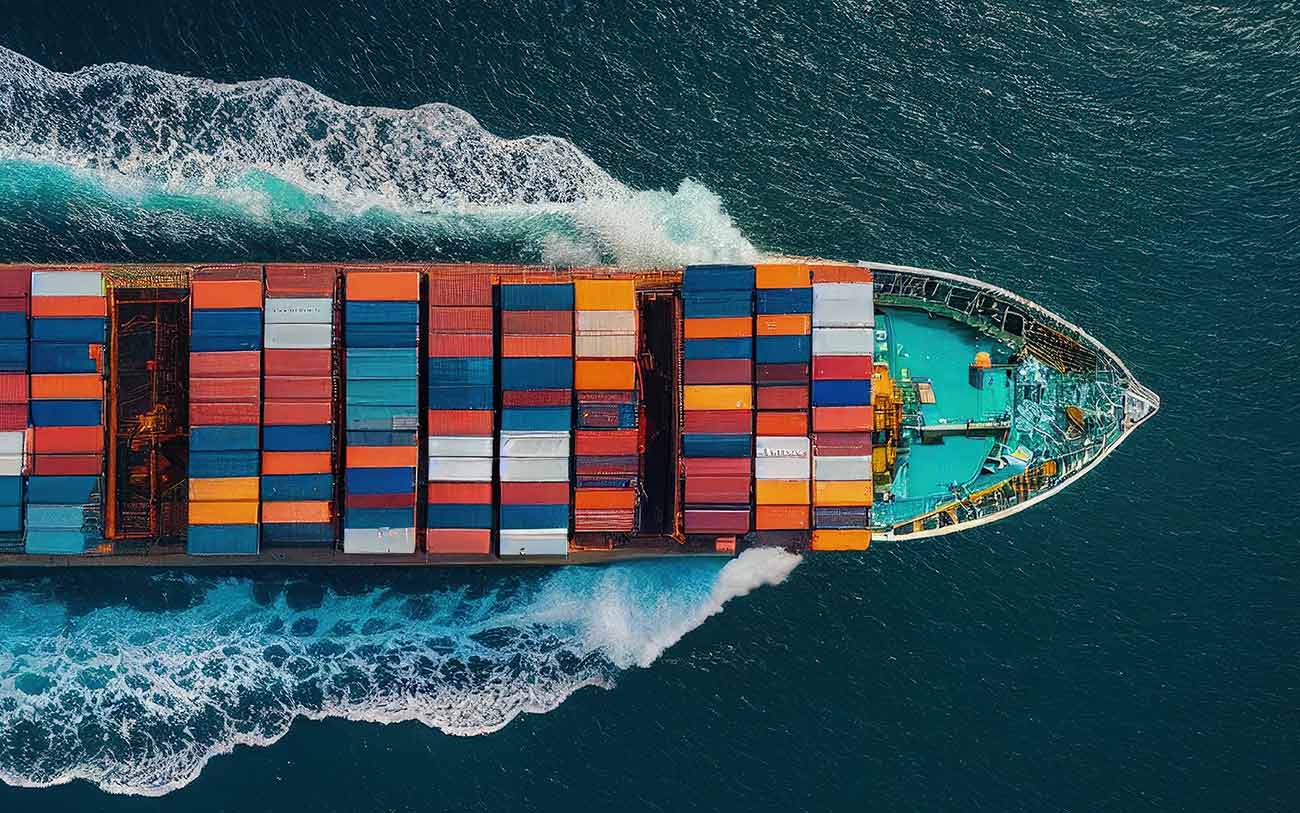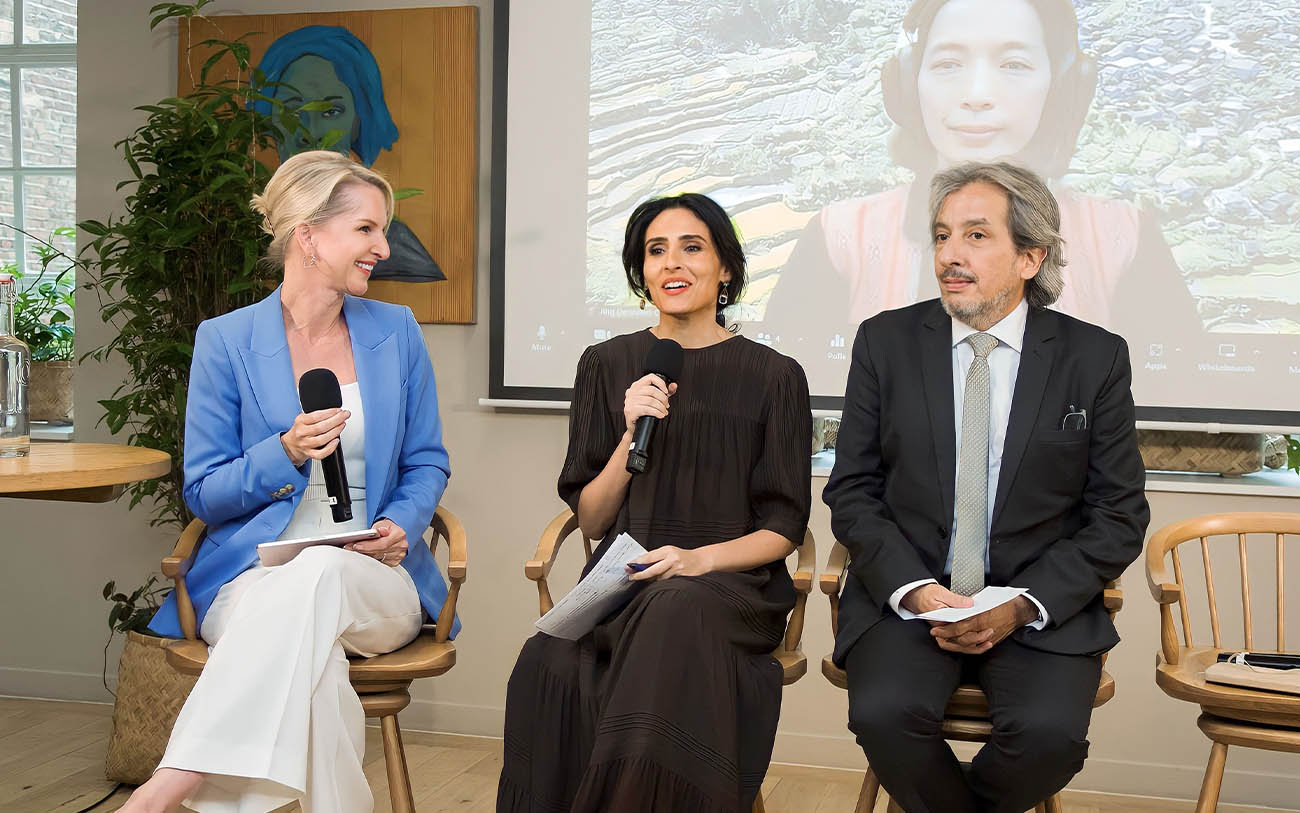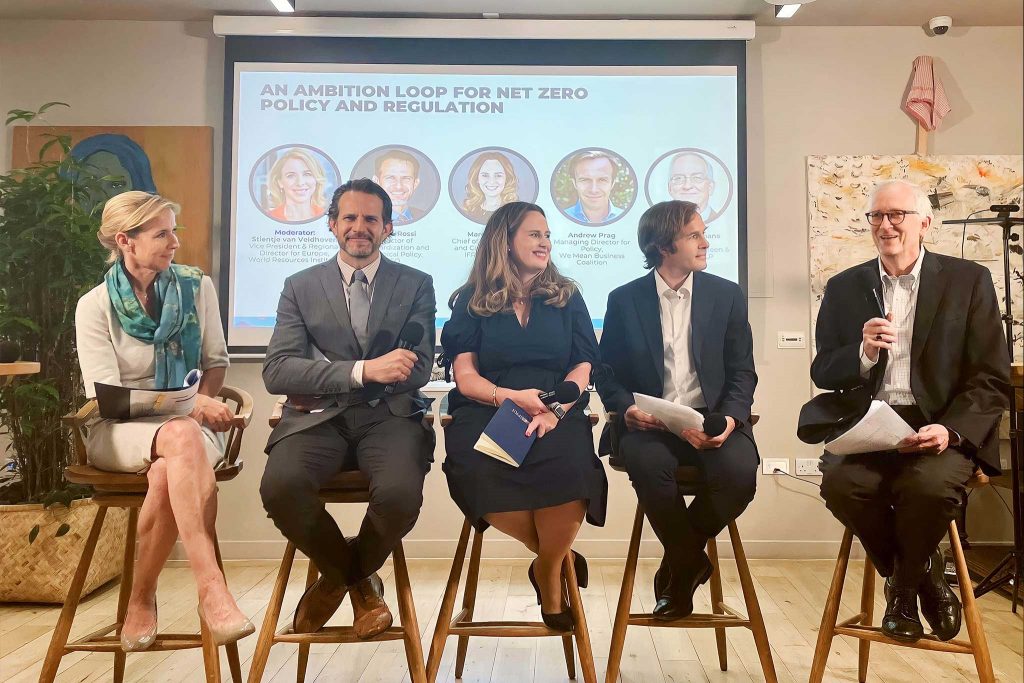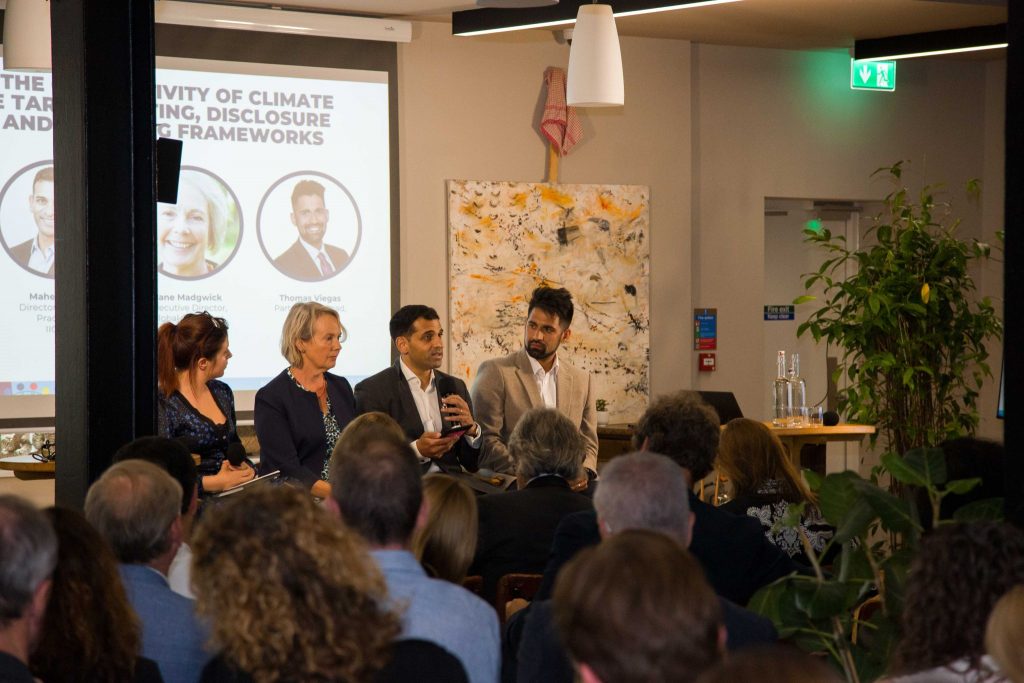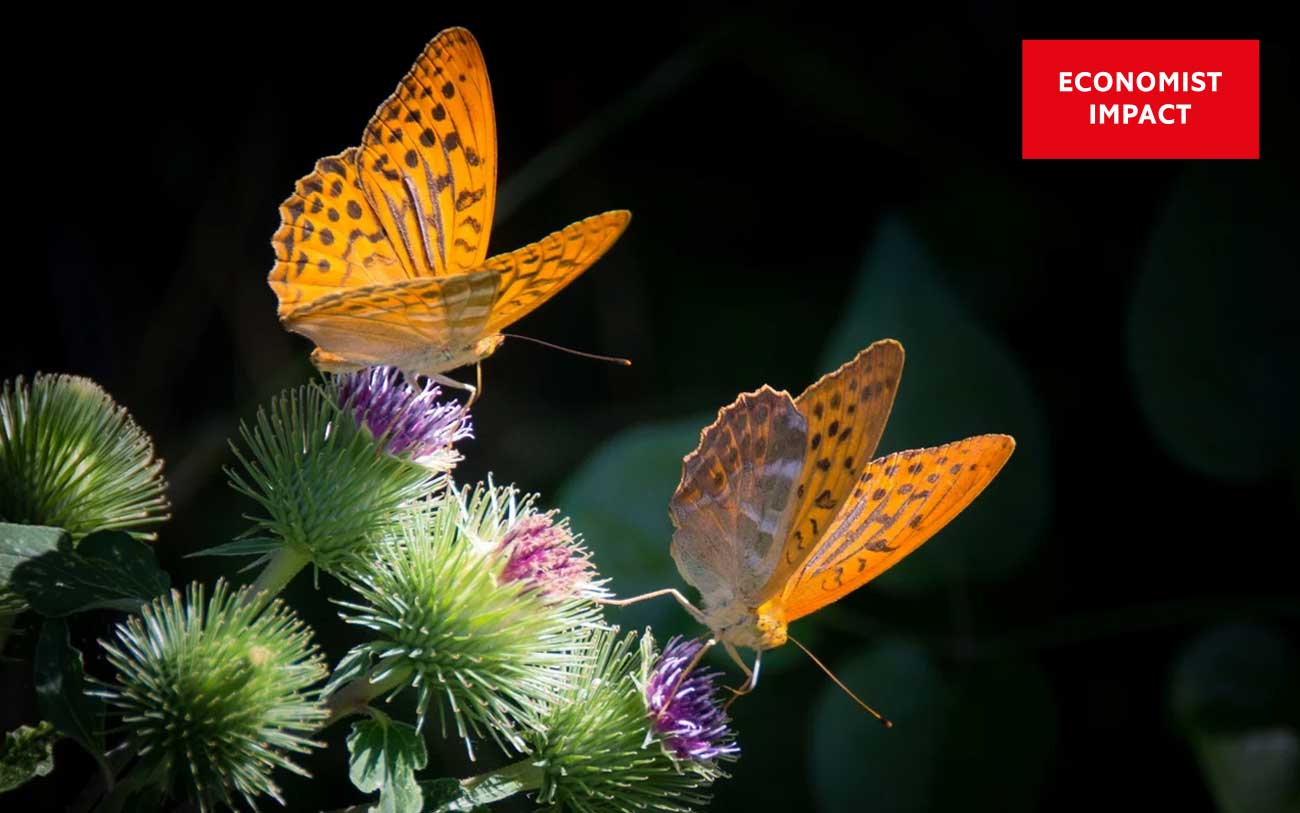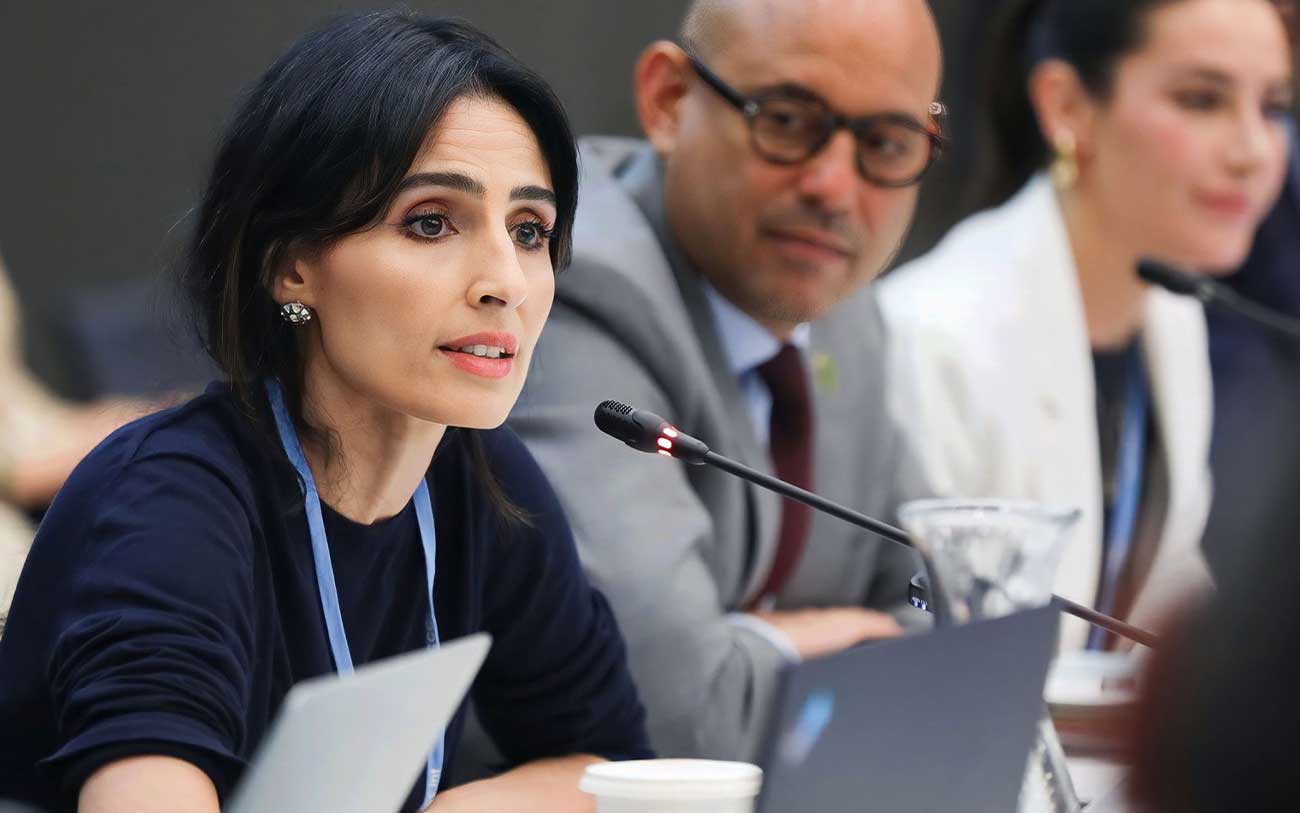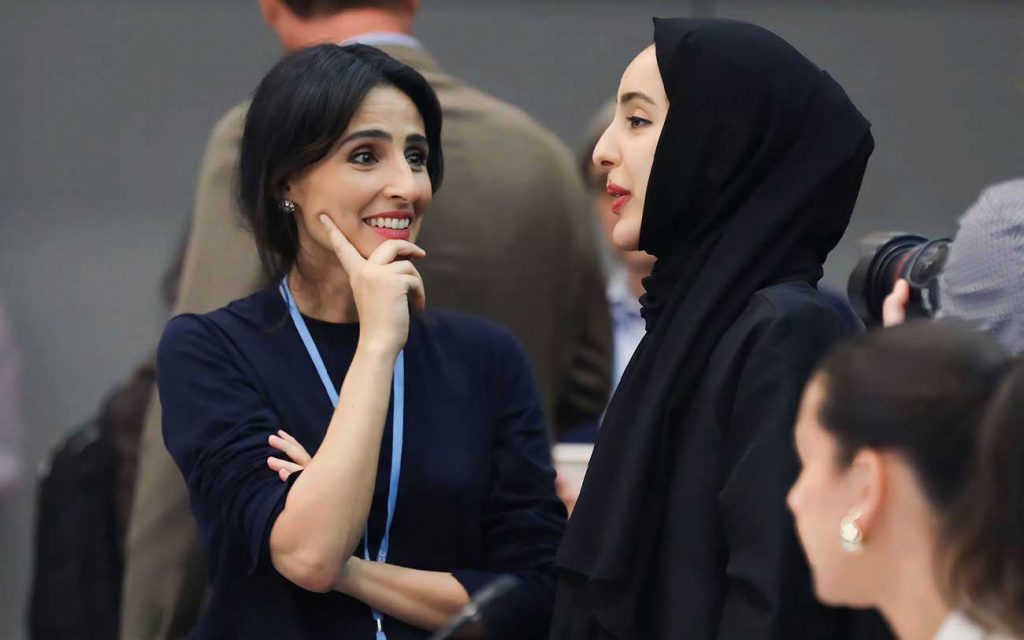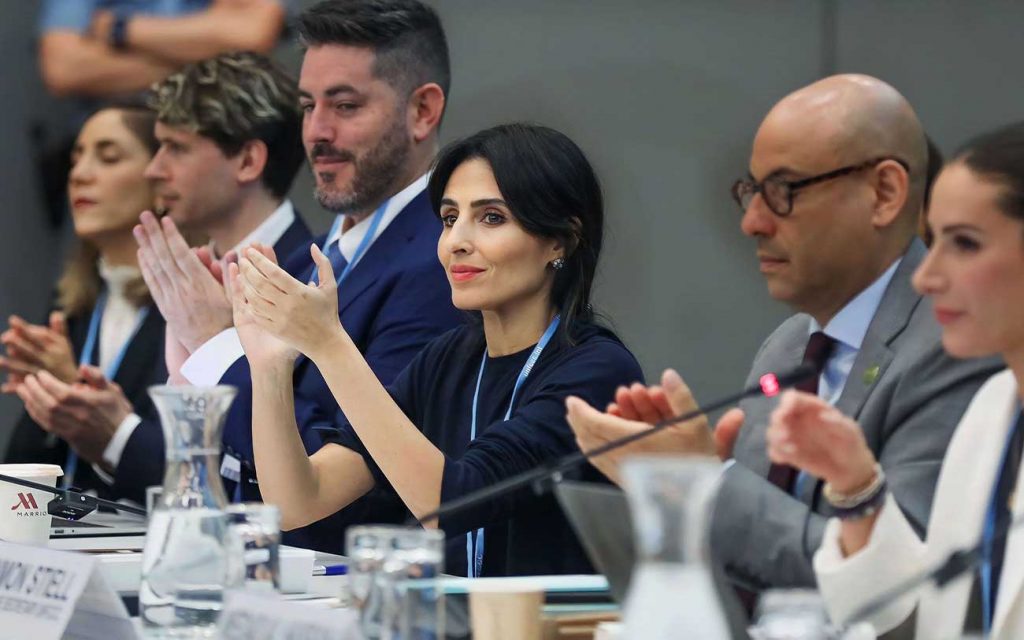In advance of a watershed meeting of the International Maritime Organization (IMO) conference in London next week, Razan Al Mubarak wrote an op-ed for Context calling on the maritime shipping industry to significantly cut carbon emissions over the next five years while also prioritizing a just transition to green fuels that will benefit developing countries.
With over 90% of internationally traded goods transported by sea, marine shipping accounts for about 3% of global emissions, comparable to the sixth largest country in the world. Cutting emissions in the shipping industry is critical to limit climate change to 1.5 degrees Celsius. According to Ms. Al Mubarak, the sector can transform both its emissions and efficiency by scaling existing initiatives like hydrogen-fueled vessels and emission-free green corridors. She wrote:
“The central role of shipping and its reliance on highly polluting fuel takes a massive planetary toll. As global trade expands, the sector’s emissions are projected to skyrocket by up to 250% by 2050. This cannot be an option. Make no mistake, at the rate that shipping emissions are rising, this is the last opportunity for the IMO to commit to a 1.5C future.”
Supporting developing nations in the transition to green shipping holds immense potentia, according to Ms. Al Mubarak. Countries like Kenya, Mauritania, and South Africa are exploring renewable energy sources, creating a pathway for green hydrogen production for sustainable shipping. And collaborations between nations and companies, such as Belgium-based CMB partnering with Namibia's O&L Group, provide a model for an inclusive and equitable transition. She added:
“A just and inclusive shipping transition would unlock myriad benefits for coastal communities across the globe. According to the Maritime Just Transition Task Force, 800,000 seafarers could require training by the mid-2030s to handle the green fuels needed to decarbonise shipping by 2050. By powering clean growth, developing regions can escape cycles of underdevelopment and debt while creating economic benefits and stability for all.”
Launched by the Thomson Reuters Foundation in 2022, Context is a news and analysis platform focusing on three of the most critical issues facing humanity: climate change, the impact of technology on society, and the need for more inclusive economies.
